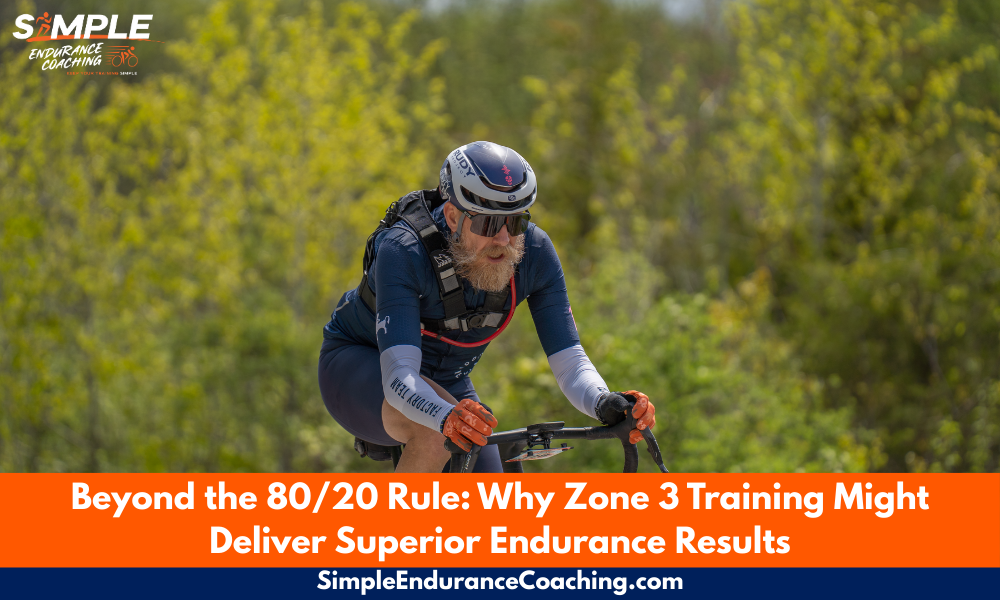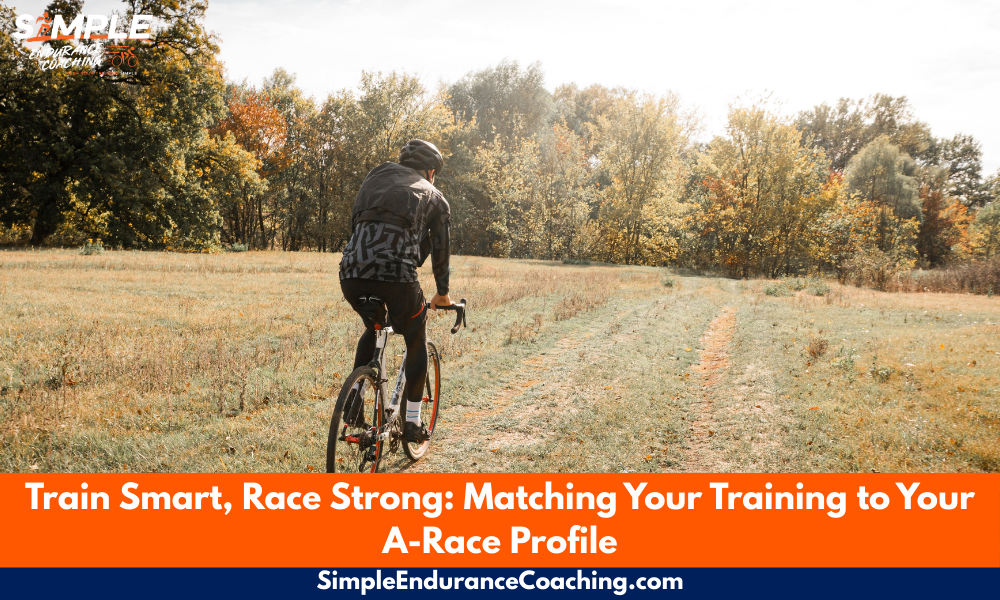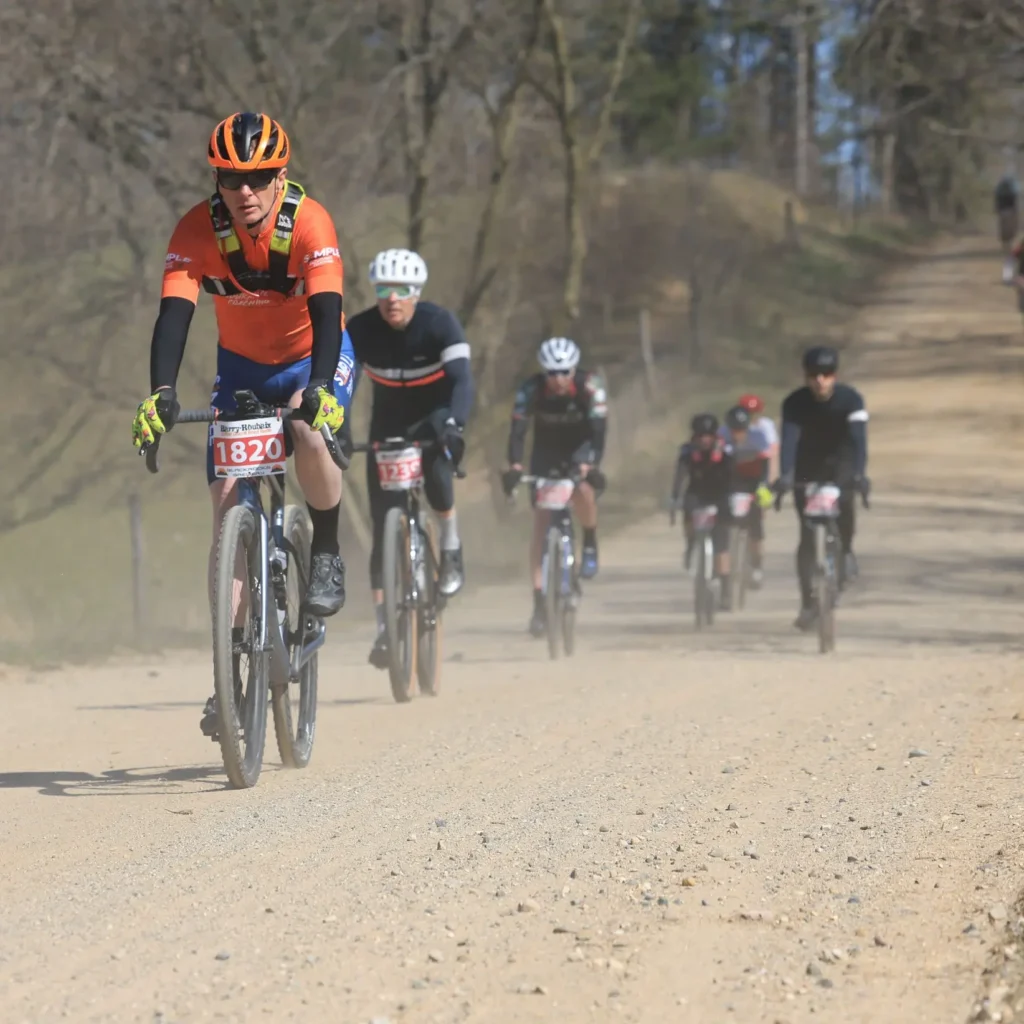My daughter was a high school swimmer who refused to heed her dad’s advice that female athletes need more protein in their diets, probably way more than they’re currently getting.
Those of you who have raised teenagers understand my daughter was pretty convinced she knows everything.
Yet as her season continued she got more tired and got more cases of sniffles.
Swimmers, like runners and cyclists, are endurance athletes, and female endurance athletes need far more protein than they’re likely getting.
She needed far more protein in her diet than she’s got to support her female physiology because protein fuels her capacity to go hard during swim practice, then recover from the efforts and get stronger.
Dr. Stacy Sims explains why female athlete nutrition is important
In her book, Roar, Dr. Stacy Sims explains how most research on athletic nutrition was done on college-aged men.
However, women have unique nutritional needs based on hormone differences.
There’s a lot that goes into nutrition in general, and we’re not getting into the details of carbohydrate and fat consumption.
Nor are we discussing general nutrition for racing or events.
I want to focus on what I see as the biggest dietary shortcoming in most women I work with: the need for more protein.
Research about female protein intake
Studies have shown that female endurance athletes who consume protein within 30 minutes after exercise experience improved muscle protein synthesis and recovery compared to those who consume protein later.
In fact, research suggests that female athletes may require up to 1.2-1.4 grams of protein per kilogram of body weight per day to support muscle recovery, repair, and growth.
Research suggests that female endurance athletes may require more protein in their diet due to several factors.
First, during exercise, the body breaks down muscle tissue, leading to protein breakdown. This process can be more pronounced in endurance athletes due to prolonged periods of activity.
Second, women typically have less muscle mass than men, which means they may need more protein to support muscle maintenance and growth.
Protein allows for more lean muscle gain
Female athletes need more protein to build and maintain muscle, especially with the right timing before and after workouts.
First of all, high-protein diets (more than 25 percent of calories) can reduce blood pressure, bad LDL cholesterol levels, and triglycerides, according to Sims.
“As a woman, if you want to be active, maintain muscle, and maybe lose more weight, protein is a must.”
Second, protein also helps with weight loss, since protein is harder to digest so it requires more calories to burn.
Additionally, protein helps maintain muscle mass, increases immunity, and improves sleep, digestion, and hormone regulation.
If you are an older woman, protein intake is even more critical because your hormonal changes decrease your body’s capacity to develop lean muscle mass.
In fact, older women, particularly menopausal and post-menopausal need to eat in some ways like male bodybuilders, eating boatloads of protein-rich foods!
Time your protein intake right
Female athletes need more protein – before and after workouts – to optimize muscle synthesis.
Have I said that enough yet?
Sims says, “Protein is a dietary superstar.”
Yet most women are simply not getting enough protein.
Female athletes need more protein intake, especially with the right timing.
Leucine is a key essential amino acid (meaning your body doesn’t produce it) because it triggers muscle protein synthesis, which, in turn, develops lean, active muscle tissue.
Leucine shuts down the catabolic process (breaking down muscle tissue) and signals your muscles to start repairing and recovering.
If you take in protein prior to a workout, your body is better able to make muscle out of protein because there’s already a supply of leucine in the muscle, and eating immediately after will replenish the leucine supply.
Replenishing protein after a workout gives your female system more time to recover
The 30-minute time is there for women because of the “anabolic window.”
With a big dose of protein, your cortisol levels will drop, which means your time of developing lean muscle mass lengthens.
Get the big hit of protein after an intense workout session or a workout that lasts more than 60 minutes or so.
And while every woman needs to fuel differently according to individual needs, there are some common and necessary components for an active woman’s fueling needs.
- Consume around 20 grams of protein before workouts along with some carbohydrate calories.
- Get around 30 grams of protein at every meal.
- Have some carbohydrates with your protein to maximize restocking glycogen stores.
- For optimal recovery, look to get 25 to 30 grams of protein within about 30 minutes of exercise. Additional protein prior to training also helps muscle adaptation.
- Most of your muscle repairs happen at night when you sleep, so an additional bit of protein (15 grams) before bed helps the amino acids do the job of refueling the muscles..
- Get in 25 to 30 grams in your morning meal, especially if you worked out the day before since your body is still in a recovery state.
Female athletes need more protein, but how much?
- In general, female endurance athletes need one gram of protein per pound of body weight per day for effective muscle repair, growth, and recovery.
- During the strength and power phases of training, aim for 1.0 to 1.2 grams of protein/pound.
- For endurance phases, you need 0.8 to 1.0 grams of protein per pound
- For non-training or easy days, you can take in about 0.75 to 0.8 grams of protein per pound
- Whey and casein protein powders are easy ways to increase protein intake without increasing fat.
Protein is part of a balanced nutritional plan
So here are the fundamentals for what female athletes need to eat for success and performance improvement.
- Everyday female athletes need a balanced diet of all three macronutrients: fat, carbohydrate, and protein, but especially additional protein.
- A female endurance athlete needs about 1 gram of protein per pound of body weight. That’s about 125 to 162 grams a day for an active 135-pound woman.
- Women should eat protein throughout the day, including right before bed.
- Female athletes should look for a daily intake of 40 to 45 percent carbohydrates, as long as they fuel with superior carbs like starchy vegetables and root vegetables.
Skip the intermittent fasting, paleo, and keto diets
Sims argues that paleo and keto diets, which seek to utilize fat instead of carbs in an effort to lose weight, aren’t going to support athletes and their workouts.
Especially for female athletes, a high-fat, very low-carb diet like Keto results in you using your muscles for fuel.
Plus, a high-fat diet is going to prevent protein synthesis.
The right carbohydrates consumed throughout the day, timed before, during, and after exercise provide a steady stream of energy.
Female athletes may need to supplement with protein
Since female athletes need more protein, you can find complete protein (containing all nine essential amino acids) in meat, fish, eggs, and most dairy.
Greek Yogurt – 10g per 100g
Eggs – 8g per egg
Beans – 15g per 180g serving
Nut butters 8g per 2 tbsp serving
Milk, dairy 8g – 1 cup
Tofu – 9g – 3 cup serving
String cheese – 6g per stick
Beef, chicken, pork, and fish is about 7g per ounce.
Here’s a chart with more details about the protein content in foods.
However, getting enough protein and at the right time can be challenging.
Supplementing with whey protein, particularly containing the amino acid leucine, will help build lean muscle.
That’s what I suggested for my daughter, especially throughout the swimming season.
If pigs flew…
If the kid listened to me, here is what I’d recommend for her as a female athlete needing more protein:
- two eggs for breakfast, along with her toast and some fruit.
- peanut butter sandwich for lunch along with fruit and vegetables, and a protein bar snack. (I’m not a huge fan of highly-processed protein bars but since she won’t eat nuts or yogurt or other easy-to-consume forms of protein, it’s what will work.)
- some crackers and cheese and sausage an hour before practice.
- a protein bar immediately after practice
- a complete dinner
- protein shake at night before bed.
A balanced diet with lots of fruits and vegetables – and a lot more protein
Notice I’m not counting calories or grams.
We’re focused on a balanced diet of good protein sources, lots of fruits and vegetables, and, because she’s a kid who loves noodles, mac and cheese.
The last thing we want is for her to get obsessed with food or counting calories.
Even though she does eat my gummy bears sometimes, that’s okay.
What was most important for her is to get more protein so she can get stronger and improve her swim times.
Three things to consider about female athlete nutrition
- If you take in protein after a workout, your body starts to immediately recover.
- If you take in enough protein, you will gain lean muscle mass.
- Start and end the day with protein to “fund” your recovery and workouts.
Need more?
Unlock the secrets to mastering gravel racing with our FREE Guide to Gravel Racing! Get yours here.
BOOK A CALL so we can discuss your goals, answer questions, and talk about making your endurance training more effective, fun, and Simple.
Paul Warloski is a:
- USA Cycling Level 1 Advanced Certified Coach
- RRCA Running Coach
- Training Peaks Level 2 Coach
- RYT-200 Yoga Instructor
- Certified Personal Trainer
- Certified Nutrition Advisor




